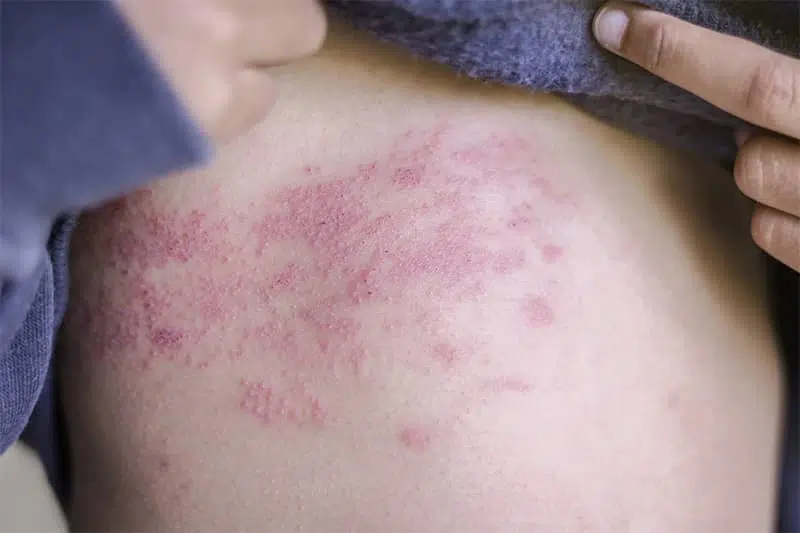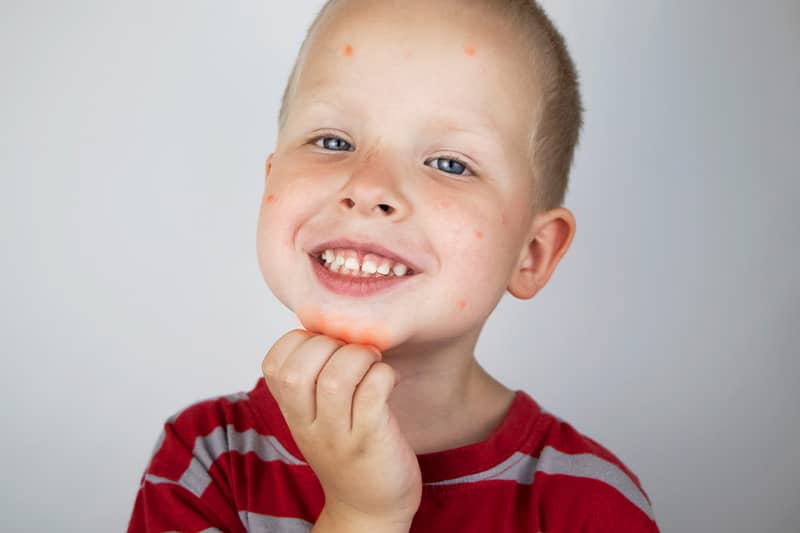Although not officially classified as one of the New England states, New Jersey has all of the environmental characteristics of the Northeastern US. This means that allergy sufferers may experience the same annoying symptoms from pollen and other allergens that others in the Northeast do. For residents of Monroe, NJ who are suffering from allergies, Becker ENT & Allergy offers life-changing solutions for patients.
Being on the outskirts of New York City, the township of Monroe is subject to grass pollen throughout spring. Ragweed and other irritants are also present in the fall, while the elevated pollution levels of New York and New Jersey also factor into the equation. Visiting an allergist or immunologist near you can help you alleviate symptoms so you can be productive and enjoy everyday life without discomfort.
How Allergies Affect You
Allergies are uncomfortable (and sometimes dangerous) reactions of the immune system to substances that most healthy people would find harmless. Allergy sufferers can react to pollutants that they ingest, inhale, or come into contact with through their skin.
The body of a person with allergies rushes to produce immunoglobulin in many cases. This is an antibody that counteracts the allergen. Production of immunoglobulin can cause symptoms like hay fever or even asthma. Depending on the person’s reactivity to any specific allergen, subsequent contact with the particular substance can result in an allergic reaction.
In extreme cases, this reaction can produce something called an anaphylactic shock. This is an extreme reaction to an allergen that can be life-threatening. If you feel dizziness, headache, abnormal swelling in the throat or tongue, nausea, itching, or other similar sensations as a result of contact with an allergen, you may be in danger.

These symptoms are all ways your body attempts to keep your systems functioning while attacking what it deems to be an intruder. Luckily, there are treatments for allergies that can help keep you safe from any extreme reactions.
Besides the miserable feeling that allergies give you, they can also be a significant damper on productivity. Professionals may be forced to miss out on business meetings and have to stay home from work due to their symptoms.
Furthermore, children and adolescents are among the most severely affected by allergies. Athletic performance takes a hit and academic achievement can suffer if students experience prolonged periods of allergy symptoms.
Allergy Treatment Options

An allergist may suggest one of three different medication protocols for dealing directly with allergy symptoms. Your doctor may prescribe antihistamines to combat the histamine production spike as a result of exposure to an allergen. These antihistamines may come in the form of capsules, creams, eye drops, or nasal sprays.
Your doctor may also suggest decongestants as a way of unblocking sinuses that rush to clog up when reacting to the allergen. A further option is a steroid medication. Available in spray, tablet, cream, or inhaler form, steroid medications stop inflammation in its tracks before it affects your breathing.
While medications can mitigate symptoms, it is generally undesirable to have to depend on them. With steroids, prolonged use is not generally not encouraged. Steroids can cause disruptions like insomnia, anxiety, and hypertension, among others. That’s why immunology offers a more promising and safer long-term solution for allergy sufferers.
Immunotherapy for Allergies
For those looking for a way to avoid constantly relying on allergy medication and its side effects, immunology offers a better long-term solution. Immunotherapy is a process that resembles vaccination against a specific allergen. It involves a treatment process that may take a few years for optimal results but offers more benefits than medications for symptom management.
During immunotherapy, an immunologist introduces a tiny amount of an allergen into your system via an injection. The goal is to have your body react to the stimulus without producing undesirable adverse effects. Gradually, your allergy doctor increases the amount of the allergen over time so that your immune system becomes accustomed to it.
Eventually, your body becomes desensitized to the allergen. Even though your immune system still reacts to it, the symptoms are either absent or minimal. Many patients see a significant decrease or elimination of symptoms with immunotherapy.

Frequently Asked Questions About Immunotherapy
An immunologist is a doctor who is an expert on the immune system. Any pathogen or other intruder is met with a response by your body. This response mobilizes many systems including the cardiovascular, nervous, and digestive systems.
Special cells called lymphocytes are mobilized to deal with any incoming threat. Furthermore, in the case of an injury, platelets are used to coagulate the blood in order to stop any bleeding. Immunology focuses on how people can maximize the effectiveness of their immune systems to fight off infection.
Asthma can be allergic or non-allergic. In the latter case, the symptoms of asthma can be triggered by stress or viral infections. Allergic asthma is the product of a response to allergens. Therefore, if you are allergic to environmental allergens or pollutants, symptoms can progress to an asthma attack.
Wheezing, tightness in the chest and difficulty breathing are the most common symptoms of an asthma attack. You may also experience hives, itchy skin, or cough.
Although you cannot permanently rid yourself of allergies, an allergy doctor can help you train your body to produce fewer symptoms. For most people, this is satisfactory enough.
Keep in mind that if you are allergic to a pollutant, food, or other stimuli, you may still have to be mindful of drug interactions. Be sure to inform your doctor of your allergies when dealing with any other health issue that you may face.
Usually, the only side effect of an allergy shot is some redness possibly accompanied by a little swelling. Your allergy doctor uses antihistamines in the regimen to keep any side effects to a minimum. Side effects may appear right after the shot or even a few hours after your visit to the doctor’s office.
If you experience side effects after leaving the office, contact your Monroe allergy doctor and they will monitor the situation. You may have to take antihistamines and the doctor may reduce the amount of allergen in your shot depending on their analysis.
Directions to Becker ENT & Allergy
Patients visit Becker ENT & Allergy from the greater Monroe area and beyond. Our office caters to people from all over the Northeast looking for relief from their persistent allergy symptoms. Our office in Monroe Township, NJ (Middlesex County) can sometimes be tricky to spot, so take care not to drive by!
To locate us, look near the Forsgate Country Club. Becker ENT & Allergy shares a building with Amboy Bank and the office can be found at 350 Forsgate Drive.
Directions from New York / Newark:
- Get on I-95 South
- Take exit 8A toward NJ-32 E/Jamesburg
- Merge onto Forsgate Drive
- The office will be on the right in 1.2 miles
Contact Your Local Allergist or Immunologist
If you are a resident of the greater Monroe Township area, Southern New York, or Eastern Pennsylvania, contact Becker ENT & Allergy today. We offer allergy and immunology solutions that can help you effectively deal with your allergies. You can submit the form on our contact page and a staff member will get back to you.
We respond to inquiries promptly and are eager to answer any questions you may have. If you would rather call our Monroe office, the number is 609-831-0779. We cater to patients from all over the region who trust us with their allergy issues.

